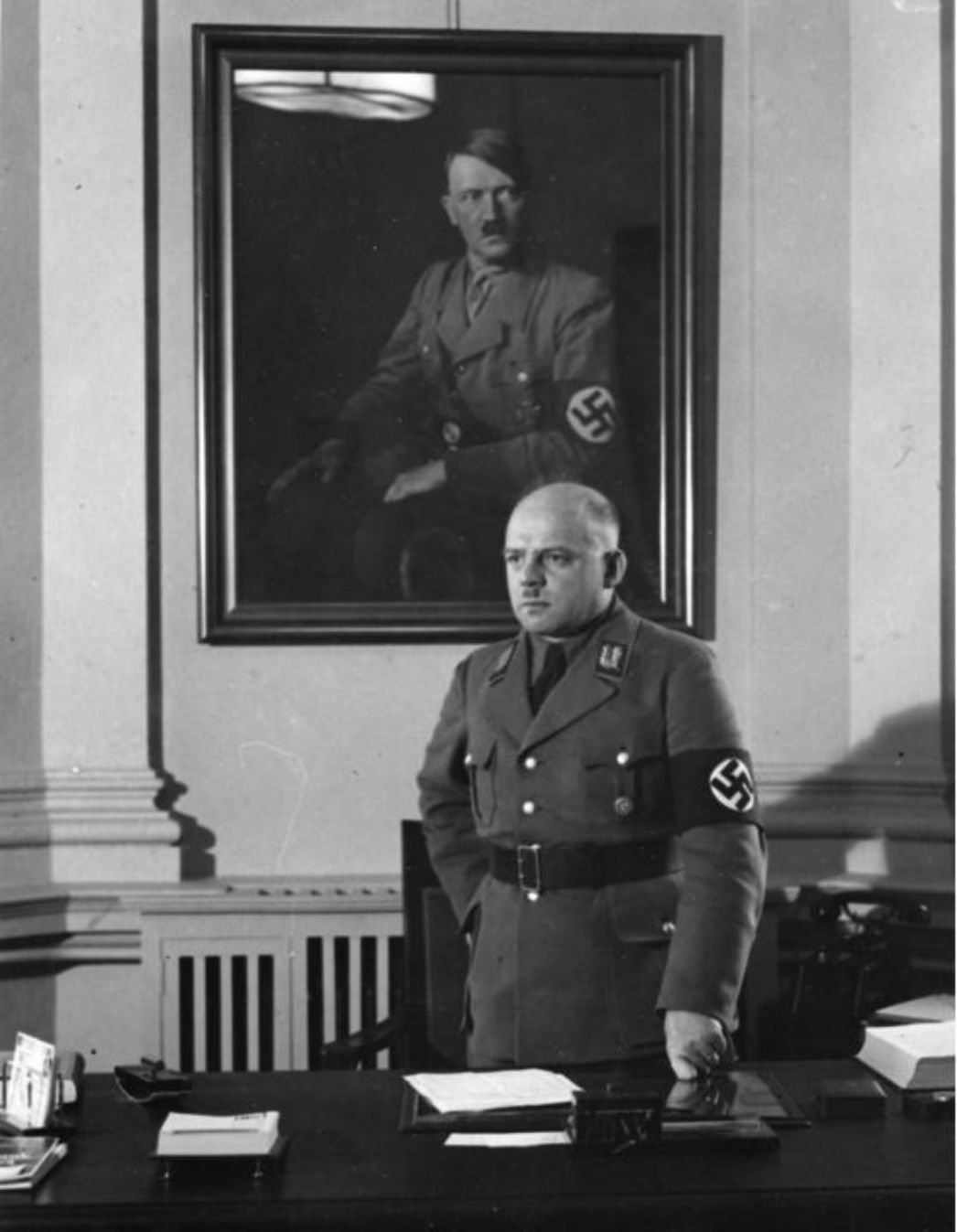
Born in 1894, Fritz Sauckel was among the earliest defenders of the German Nazi Party (Nationalsozialistische Deutsche Arbeiterpartei, NSDAP). He was a political radical and a committed anti-Semite. In the early 1920s he assumed a leading position in the anti-Semitic Deutschvölkischer Schutz- und Trutzbund, joining the NSDAP in 1923.
In Thuringia, Sauckel bore significant responsibility for the marked success of the NSDAP throughout Germany. He became the regional head (Gauleiter) of Thuringia in 1927. He was a secretary of state (Staatsminister) in the first government that the National Socialists participated in in 1931, and when the NSDAP in Thuringia formed the first Nazi government in Germany, he served as a leading secretary of state (leitende Staatsminister).
After the Nazi’s took power throughout all of Germany, Sauckel’s plans became increasingly ambitious and violent. He transformed Thuringia and the then state capital of Weimar into a model region and “Trutzgau”. Using “Aryanized” money, he founded the company Simon in Suhl and the Wilhelm Gustloff Foundation to expand his influence on heavy industry and the defence sector. The Fritz Sauckel Factory in Weimar belonged to the foundation. Here during the war, civil forced laborers and concentration camp inmates were exploited in mass numbers. In 1937 the foundation was laid for the Gauforum in central Weimar and the
Sauckel’s career assumed a national scope with his appointment as General Commissioner for Labor Deployment (Generalbevollmächtigter für den Arbeitseinsatz) on March 21, 1942 by Adolf Hitler. In this capacity Sauckel subsequently bore the main responsibility for the deportation of millions of people for forced labor in the German Reich. He thus oversaw the administration of all work in the German Reich and occupied areas. His authority extended beyond the borders of the German Reich and, for example, above and beyond those of the Reichs Ministry of Labor. His administration determined how many workers were to be brought to Germany from occupied countries. In close cooperation with the civil and military administrations of these occupied areas, his delegates on the ground were tasked with ensuring the fulfilment of worker quotas.
Sauckel’s programs lead to an intensification in the recruitment of forced laborers. This resulted in the mass deportation of women, men, and increasingly also children—largely from occupied areas of the Soviet Union and Poland. Hunting people down and draconian punishments characterized this recruitment under Sauckel.
American soldiers arrested Sauckel shortly after the defeat of Germany. He was tried as a major war criminal at the Nuremberg Trials and sentenced to death for his central responsibility for the deportation of forced laborers. Sauckel was hanged on October 16, 1946.



